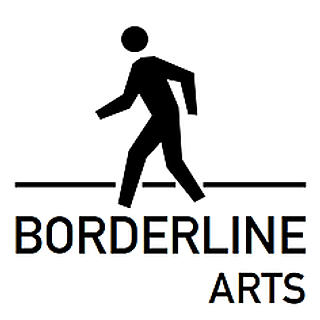Experience of Healthcare for those with BPD
- Sarah Eley
- Aug 2, 2017
- 4 min read

On 18th July, Sharon from Health Watch is came to Borderline Arts to listen to people with BPD expressing their experiences of mental health services. We were overwhelmed and delighted at such a fantastic turn out! We managed to squeeze 15 of us around the table!
Participants used paints, magazines, pens and pastels to express their experience (good or bad) of Mental Health Services in Derby and Derbyshire. It was an informal, chilled out event with free fruit, cakes and other refreshments. We then had a discussion at the end, where we talked about what our artwork expressed - we each wrote a short description to go with our artwork.

Sharon will now feedback what we have shared with her (along with our artwork and description) to the Commissioners - the people who decide where NHS money is dished out within Derby and Derbyshire. Healthwatch Derbyshire wants to ensure people are able to express their feelings and share their experiences of health and care services in a variety of ways. For some people verbally expressing their experiences can be upsetting. However sharing these thoughts using art or creativity can be a positive experience. Healthwatch Derbyshire wanted to gather the experiences of people with mental health problems who have used health and care services but may not wish to talk about it directly.

Health Watch would like to thank Borderline Arts for facilitating the event as they have extensive skills, knowledge and experience in this field. We would also like to thank the people for attending the session, giving up their time and sharing their experiences. From the feedback received (see below), it is good to know that they found it a positive experience. When asked what the best thing was about the workshop, this is what the group said: “...the common bond we shared and having people together”. “...not feeling alone”. “...being with lovely people who understand, and an opportunity to get to be with friends”. “... I felt very supported”. “... being able to express feelings creatively in an understanding and non-judgmental environment”. “...the openness & meeting other people with BPD - it's been awesome”. “...being with friendly people who listen”. “... the supportive atmosphere”. “...talking”. “...listening to people's good experiences”. “...doing art & sharing”.

Along with the artwork that was produced highlighting people’s issues, some themes arose out of conversations among the group. The use of art created a relaxed atmosphere in which to share and express more freely. Themes: Lack of CPNs (Community Psychiatric nurses) across the county. Many people wait long periods of time before one is allocated and in that time people have got more ill. Uncertainty of where to get help and lack of support at a time of mental health crisis. This issue was also highlighted by a Healthwatch Derbyshire report in December 2016. There needs to be greater support for the voluntary sector to provide help, support and activities for people in the community. This will enable people to stay well. The voluntary sector needs to work together so that service users do not feel they can only get help from one. ‘They want you to stay with them because if you chose to go elsewhere for an activity or support group they lose funding. We are made to feel bad about this and it should not be about the money, it should be about helping us to stay well.’ There is not enough emphasis on getting well and staying well. Some people felt the system was structured so that people continue to get ill in a ‘cycle’. i.e. get ill, not enough support then get very ill so go into hospital. Improve in hospital as lots of support and structure to the day. Return to the community without enough support or things to do so get ill again. There is not enough support so get very ill and so return to hospital. ‘The cycle needs to be broken.’ Several people said respect, quality of care and support from psychiatrists was not sufficient. Also the lack of continuity and frequent changes in psychiatrists was not beneficial to their mental health. Comments included: ‘They do not listen to me’; ‘They do not treat me as a whole person’; ‘I see them just to get my meds’. Many people felt their mental illness was not taken seriously when they were young. They felt that if it had been and they had been listened to at the time, then they would not still be experiencing mental health problems today. People appreciated the help and support that they received.
DBT (Dialectical Behavioural Therapy) was especially highly regarded for the positive difference it had made to their lives.
There was concern around the long waiting time for this DBT (Dialectical Behavioural Therapy) and how difficult it was to access. ‘I wish I had had it before and then I may not have stayed ill for so many years’. People would like this therapy to be more widely available and commissioners to support it.

Health Watch will now send the artwork to the commissioners and providers as part of their next ‘comments run’. They will ask the commissioners and providers what they are going to do with the information and artwork and will let us have any responses that they receive from them. However these will not be expected until early September. We are also looking into the possibility of using the pictures in an exhibition or to a display at the healthcare trust offices or at Hardwick CCG (the commissioners).
Watch this space!


